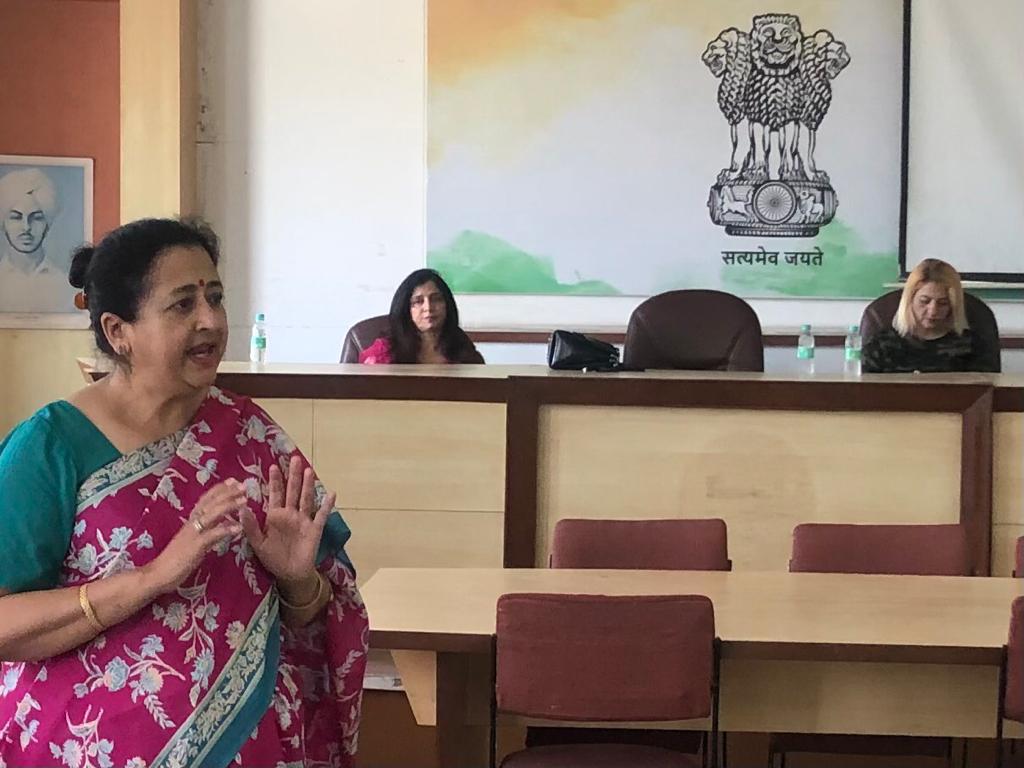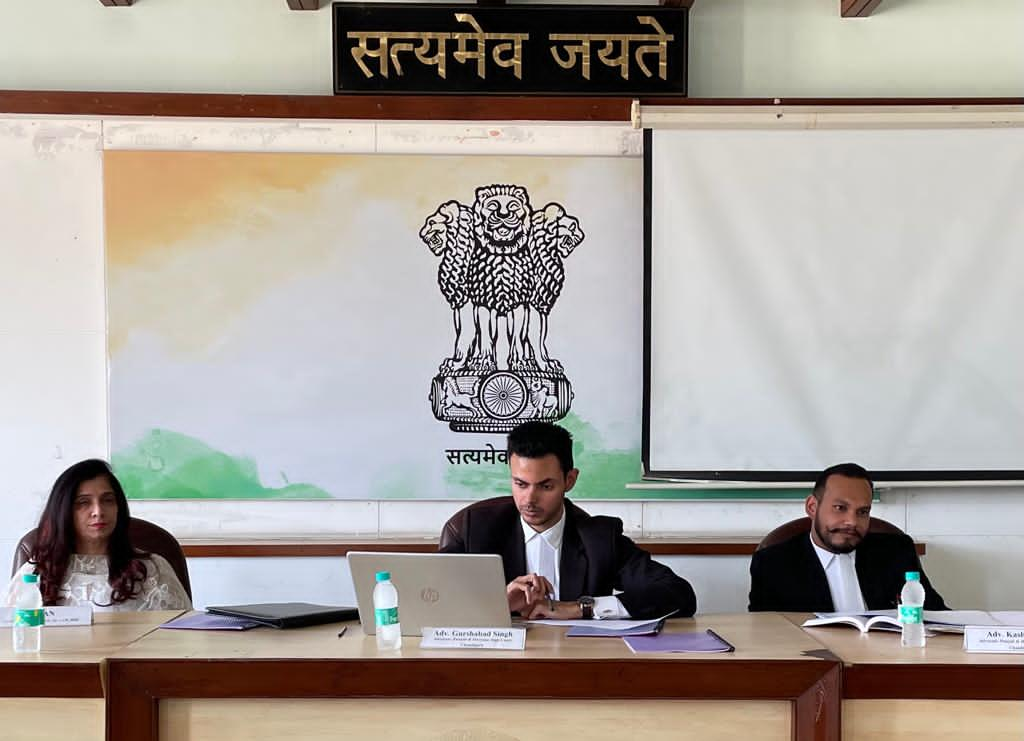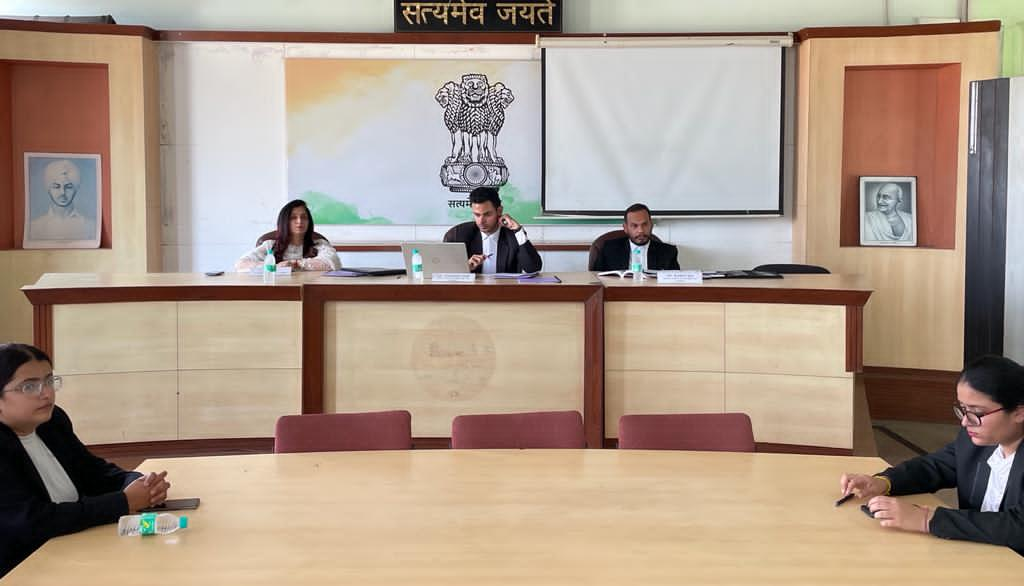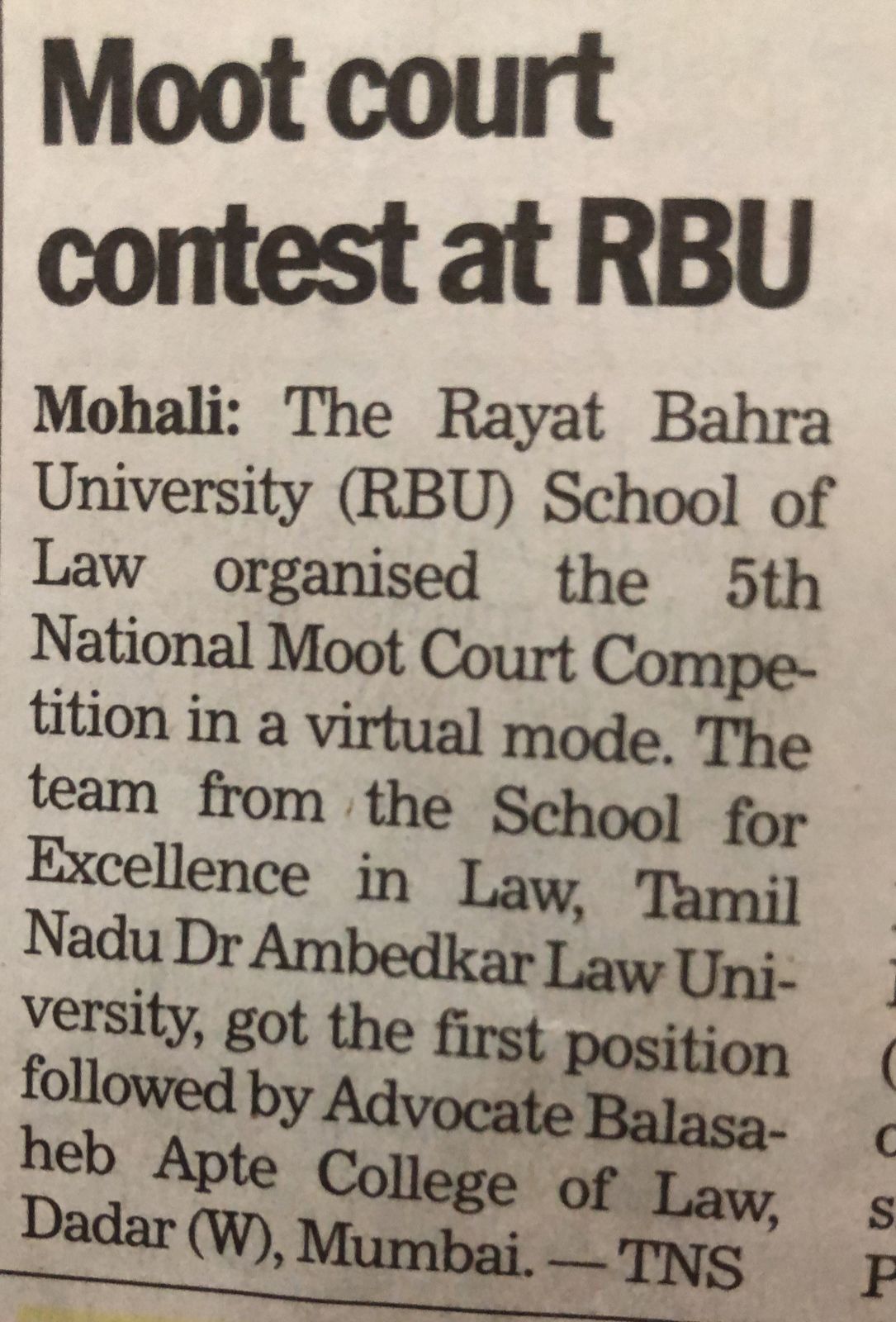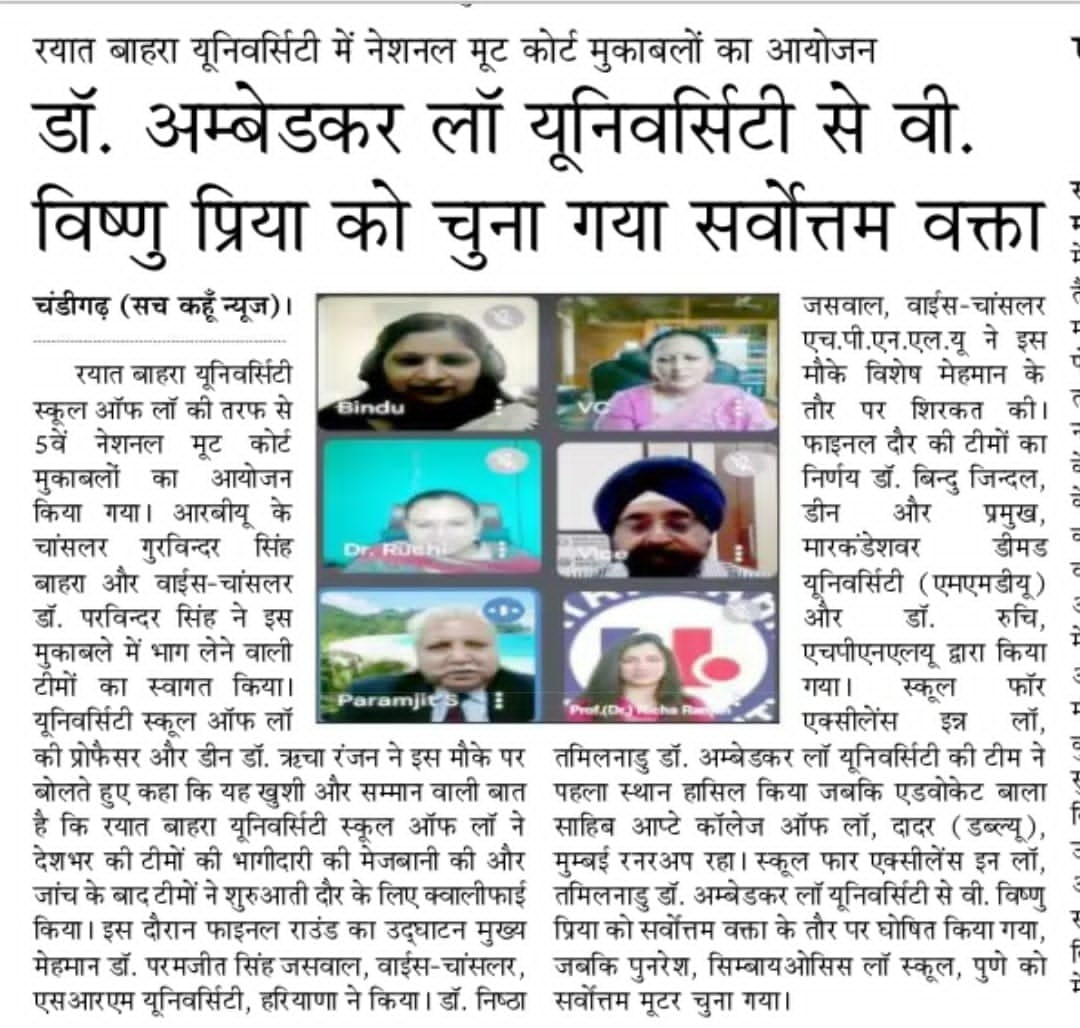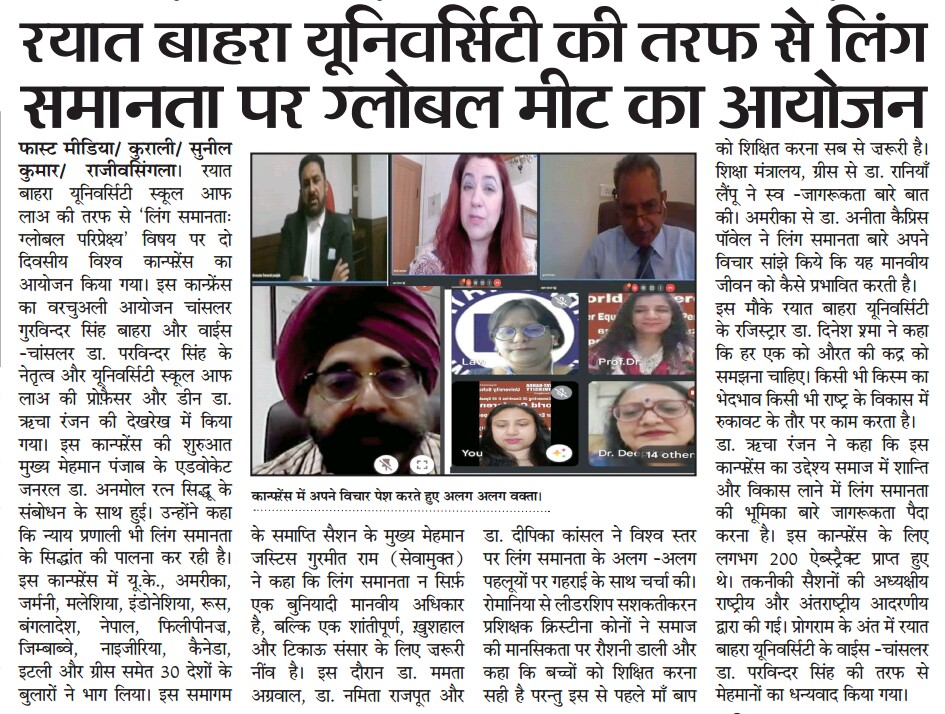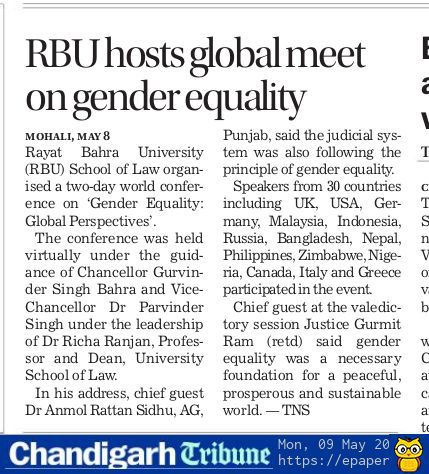- Home
- Archives: June 2022
- About
Grievance Redressal System
- Admission
- Academic
- International
- Research
- Career Center
- NAD-ABC
- Campus Life
- NAAC
- NIRF
- Contact
Media studies touches our daily lives, from television to film, radio to podcasts, social media to blogs, vlogs, and everything in between. And it’s never been more relevant than in the age of the internet, when actors, singers, and personalities can use their media skills to create their own celebrity online. These talents are becoming more in demand around the world as technology, innovation, and competition rise.
Media studies will provide you the communication and technological skills you’ll need to succeed in today’s workplace, whether or not you work in the media sector. You’ll be well prepared for all the modern workplace has to offer, whether you choose to pursue a career in cinema and television, fight for your own celebrity, or use your skills in business.
Why should you choose Rayat-Bahra University to study media studies?
Because getting a career in the media industry is so competitive, having a degree in the subject will help you stand out. It will prepare you for a fast-paced sector that expects you to move with the times by providing you with skills spanning from copywriting to camera work.
A degree in media studies will prepare you for a variety of occupations, whether you want to be the brains behind the scenes of cinema and music or make a difference as a broadcaster or journalist.
You can also utilize your media talents to research and analyze media studies theory, assisting businesses and organizations in predicting the result of news stories and current events. You can help develop public health campaigns or advise huge firms on communications by studying the history of media studies and its place in society and culture.
Media studies will enable you for a diverse range of jobs as below:
Conclusion:
The programme reflects the competitive nature of the job market for media studies graduates. Don’t expect to spend your days viewing films or listening to music; the subject requires a significant amount of theoretical, research, and analytical work in addition to the creative side.
You can expect to see parts of history, sociology, philosophy, psychology, and politics in your studies as you investigate the role of media studies in current society. You should expect a lot of self-study no matter which path you take – academic or vocational.
A CONSIDERABLE CHOICE FOR DEGREE
Every student with a degree in travel and tourism has a plethora of prospects ahead of them. Travel agent, airport customer service, ticketing officer, adventure tourism specialist, vacation adviser, and the list goes on and on.
It is critical to understand the following considerations before obtaining a degree in travel and tourism and eventually settling on a position in the travel and tourist business.
Working in this sector requires excellent interpersonal skills and experience. However, applicants might begin by selecting a relevant degree in travel and tourism. Apart from that, we offer master’s, diploma, and certificate programs in a variety of areas related to travel and tourism, such as tour operation, airline management, destination management, travel management, and hotel management, among others. Candidates can be prepared for long-term programs by participating in short-term programs.
Surviving in the industry necessitates a set of abilities. Knowledge of a computer reservation system, language and selling skills, expertise managing foreign currencies, customer service handling skills, and others are among the essential prerequisites.
Employees in this business are required to be well-versed in India’s history, art, and culture. It’s also a plus if you can communicate in a language other than English.
When you examine yourself and determine that you are a good fit for the travel and tourism sector, you have made the right decision. Rayat Bahra University offers the best job-oriented travel and tourism degree programs to prepare you for a career in this field.
The term “online education” refers to the type of knowledge that is delivered via the internet. Millions of people around the world are enrolled in online courses, allowing them to learn from the convenience of their own homes. Online education can take many forms, including educational webinars and films on the internet, as well as face-to-face studying on a laptop with an instructor that makes use of the internet.
Because it gives flexibility among other things, online education delivers a plethora of benefits for both individuals and businesses. This shows that, regardless of where people live, they may achieve the same degree of education by attending equivalent online courses.
Teachers and professors optimize the curriculum’s timelessness and focus, while students are able to fit learning time into their schedules.
ADVANTAGES OF ONLINE MODE OF EDUCATION:
CONCLUSION:
Online education offers both benefits and drawbacks, but it is a wonderful technique of learning that can aid in the development of a student’s abilities. To be successful in online education, one must select the best institution and course to avoid enrolling in one of the many suspect universities that employer may reject. The other most important item is to ensure that communication with the school faculty and fellow pupils is maintained. The main element is appropriate time management, which allows us to manage our time and finish and submit assigned tasks on time.
Controller of Examination Department,
Academic Block, Rayat Bahra University,
Kharar, Mohali.(Punjab)
Phone No. 0160-5009665,75,71
Email: examination@bahrahealthcare.com
Beneficiary Name: Controller of Examination Rayat Bahra University
Account No. 19341131000261
Bank Name: Punjab National Bank (e OBC)
IFSC CODE: ORBC0101934
Place: Sahauran (Mohali)
Academic documents requests are usually processed between one and three business days. During periods of high volume, it may take longer. All charges are nonrefundable. Document requests will not be processed for students with financial obligations to the university.
